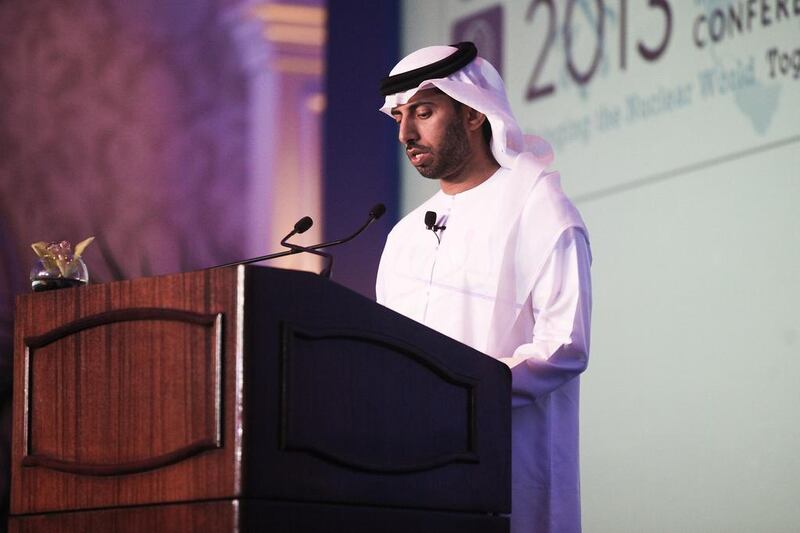EXCLUSIVE TO THE NATIONAL
The oil price slump will probably stimulate higher global economic growth this year, the UAE’s Energy Minister said.
"We are experiencing an obvious oversupply in the market that needs time to be absorbed," Suhail Al Mazrouei told The National in an email interview. "Depending on the actual production growth from non-Opec countries this problem could take months or years [to be resolved]. If they act rationally we can see positive corrections during 2015.
“Also the current oil prices could encourage world economic growth higher than the expected, which could drive demand upward.”
Brent fell 48 per cent last year. It was down about 1.5 per cent yesterday to $52.30 a barrel at 7.30pm in Abu Dhabi .
The IMF lowered in October its world growth forecast for this year to 3.8 per cent, down from its July forecast of 4 per cent due to weak economic growth in the euro zone and slower growth in major emerging economies.
The IMF has forecast UAE growth at 4.5 per cent for this year on stronger activity in the non-oil sector. The UAE’s economy is forecast to have expanded by 4.8 per cent last year to reach Dh1.54 trillion from Dh1.47tn in 2013, Economy Minister Sultan Al Mansouri has said.
Last month he said GDP will reach Dh1.62tn this year as the government continues to spend despite the oil price decline drawing on surpluses from previous years that will help shield the economy from external oil price shocks.
Crude prices have plummeted as the US shale oil boom last year helped to boost US production to a three-decade high exceeding 9 million barrels of oil per day (bpd). Opec, meanwhile, has continued to pump 30 million bpd and decided on November 27 to maintain output in a bid to to protect market share rather than halt the oil price decline.
The group has forecast demand for its oil will be 28.9 million bpd this year.
To compound the problem, Iraq, the second-largest producer in Opec and the only member allowed unfettered production of oil, and non-Opec member Russia are pumping crude at decades-high levels. Russian oil production rose 0.3 per cent last month to a post-Soviet record of 10.6 million bpd, while Iraq exported at a near 35-year peak of 2.9 million bpd. The Baghdad government has signed an agreement with the semi-autonomous Kurdish region, which will help boost national production to 4 million bpd this year. Iraq produced 3.3 million bpd in November, according to Opec in its December monthly report.
In the UAE, the expansion of production levels is set to continue amid lower oil prices, according to Mr Al Mazrouei, with plans under way to boost capacity to 3.5 million bpd by 2017 from the current 3 million bpd.
“Most of the projects are committed and under construction, and we don’t foresee any delays on the capacity expansion,” the minister said. “But building capacity is something and using it is something else. We will always be wise and considerate of the world supply and demand.”
In November, the UAE produced 2.7 million bpd, according to Opec.
“The oil and gas industry in the UAE is well developed and as a mature producer, we are not going to change our plans due to price fluctuation,” said the minister. “We have dealt with such fluctuation in the past and we will not panic this time. There is a world demand increase on crude oil and especially our crude, and we believe the market will stabilise itself eventually.”
dalsaadi@thenational.ae
Follow The National's Business section on Twitter





